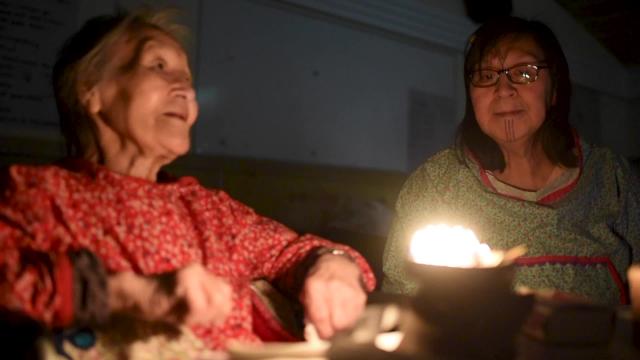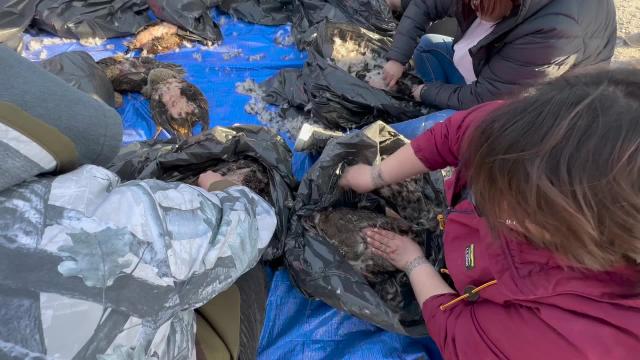ᓱᒃᑲᔪᒥᒃ ᖃᕋᓴᐅᔭᒃᑯᕈᓐᓇᐅᑎᖃᕐᐲᑦ? ᓱᒃᑲᔪᒧᐊᕐᓗᑎᑦ
ᑕᕆᔭᕋᓱᒃᑕᐃᑦ ᓱᒃᑲᐃᓗᐊᕐᐸ? ᐊᓯᓪᓕᕐᓗᒍ ᓱᒃᑲᐃᓂᕐᓴᒧᑦ ᑕᑯᒃᓴᐅᓇᕐᑐᒧᑦ
Unipkaaqtuq Sleeping Words pt2
About
On April 12th2012, a group of Elders and traditional skills experts from Ulukhaktok and Cambridge Bay travelled to London, England, with representatives from the NWT Literacy Council, the Prince of Wales Northern Heritage Centre and the University of Lethbridge. Jonathan King, keeper of anthropology at the British Museum, invited the group to spend a week in the Museum store houses where the largest and oldest collection of Inuinnait artifacts anywhere in the world is kept.
The collection contains hundreds of items including intricately decorated parkas and shoes, cold forged copper knives with slim, leaf shaped blades, remarkable bows made from antler and sinew, as well as all manner of tools and smaller items of clothing. Some of these objects date back to the first recorded contact between Europeans and the Inuinnait. Film maker David Stewart, from the Inuvialuit Communications Society, followed the journey and filmed the participants as they explored the collection, and London.The stores are housed in an inconspicuous, brick faced building on a narrow side street in north London.
Inside, in wooden boxes stacked on rows of steel shelving, were hundreds of thousands of objects collected from every corner of the earth. The museum regularly invites delegations from around the world to come to the storehouses and interact with objects from their respective cultures. These visits help the museum to understand better the cultural and historical significance of objects and provide the visitors with a chance to connect with their heritage.
The group had seen photos of the Inuinnait collection, but actually being in a room with the objects laid out on a table for the group to touch and hold was a different kind of experience; fascinating and emotional in equal measure. For five days, the group examined around 300 items and took thousands of photos noting details of the craftsmanship and the materials used. To these knowledgeable observers, the objects were like rich texts containing clues to forgotten skills, important stories and “sleeping words” that have lain dormant for a generation or more. They represent the ingenuity of generations of Inuinnait and offer a physical connection to the unique knowledge and skills that allowed them to thrive in one of the harshest environments on earth.
When the visit was over the group had taken well over 3000 photos, as well as hours of video footage. These will form part of a virtual exhibit and a documentary about the project that will promote the survival of essential Inuinnait skills and culture in younger generations.
















